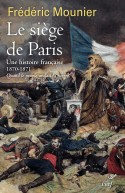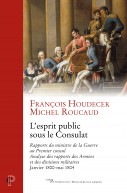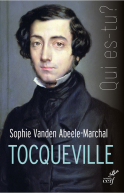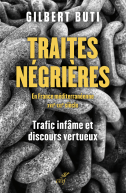
Botticelli et Savonarole
Collection Cerf Histoire
160 pages - oct. 2010
29,00€
Florence, 7 février 1497. Le Carnaval bat son plein. Sur la place de la Seigneurie, frère Jérôme Savonarole, le virulent réformateur de la cité, fait dresser un bûcher où sont brûlées des « vanités » cédées de gré ou de force par les Florentins. Disparaissent ainsi, dans les flammes, bijoux et parures, cartes à jouer, livres libertins, mais aussi œuvres d'art jugées « païennes ». Comment Sandro Botticelli, l'auteur du « Printemps » et de la « Naissance de Vénus », a-t-il vécu un tel spectacle ? A-t-il été impressionné par les invectives du dominicain contre le dévoiement de l'art ? Va-t-il tourner le dos à la Renaissance, lui qui a célébré, par ses pinceaux, la magnificence de Laurent et brillamment mis en image la culture humaniste promue par les Médicis ? Le livre se présente comme une enquête : sans parti pris, l'auteur accumule les preuves, les témoignages ; il recherche des indices dans les tableaux de Botticelli eux-mêmes ; il donne la parole à Savonarole, le prêcheur de l'Apocalypse, mais aussi aux poètes et aux philosophes de cette Florence qui se prenait pour une Nouvelle Athènes. Le résultat est passionnant : on découvre deux personnalités d'exception, plus complexes qu'il n'y paraît ; on entre de plain-pied dans une époque brillante et novatrice, mais bien vite ébranlée dans ses certitudes et déchirée par ses propres contradictions. Les existences croisées de Savonarole et de Botticelli témoignent pleinement de la Renaissance arrivée à son apogée et déjà en crise.
--
Florence, February 7, 1497. The carnival is in full swing. At the Piazza della Signoria, Brother Girolamo Savonarola, the city’s fervent reformer, is casting ‘vanities’ into a bonfire, having obtained them by persuasion or by force from the people of Florence. Gems and necklaces, playing cards, libertine books, but also art works deemed to be ‘pagan’ are devoured by the flames. How did Sandro Botticelli, painter of Primavera and The Birth of Venus react to such a sight? Was he impressed by the Dominican’s diatribes against the corruption of art? Would he turn his back on the Renaissance, he who enshrined the magnificence of Lorenzo and so brilliantly represented humanism as promoted by the Medici family? This book reads like an investigation. Objectively, the author gathers testimonies; searches for clues in Botticelli’s paintings; quotes Savonarola, the preacher of the Apocalypse, as well as poets and philosophers of a Florence that was so eager to be the new Athens. The result is a fascinating read: we discover two outstanding personalities who are much more complex than they first appear; we are invited into a brilliant era of innovation that was soon to be shaken to its roots, torn asunder by its own contradictions. The lives of Savonarola and Botticelli provide a rich testimony of the Renaissance at its zenith- yet already in crisis.
--
Florence, February 7, 1497. The carnival is in full swing. At the Piazza della Signoria, Brother Girolamo Savonarola, the city’s fervent reformer, is casting ‘vanities’ into a bonfire, having obtained them by persuasion or by force from the people of Florence. Gems and necklaces, playing cards, libertine books, but also art works deemed to be ‘pagan’ are devoured by the flames. How did Sandro Botticelli, painter of Primavera and The Birth of Venus react to such a sight? Was he impressed by the Dominican’s diatribes against the corruption of art? Would he turn his back on the Renaissance, he who enshrined the magnificence of Lorenzo and so brilliantly represented humanism as promoted by the Medici family? This book reads like an investigation. Objectively, the author gathers testimonies; searches for clues in Botticelli’s paintings; quotes Savonarola, the preacher of the Apocalypse, as well as poets and philosophers of a Florence that was so eager to be the new Athens. The result is a fascinating read: we discover two outstanding personalities who are much more complex than they first appear; we are invited into a brilliant era of innovation that was soon to be shaken to its roots, torn asunder by its own contradictions. The lives of Savonarola and Botticelli provide a rich testimony of the Renaissance at its zenith- yet already in crisis.
- Dimensions : 160x240x10
- ISBN : 9782204092593
- Poids : 390 grammes
DANS LA CATÉGORIE HISTOIRE GÉNÉRALE
Traites négrières en France méditerranéenne (XVII-XIXe siècle)
Trafic infâme et discours vertueux
de Gilbert Buti
248 pages - nov. 2023






